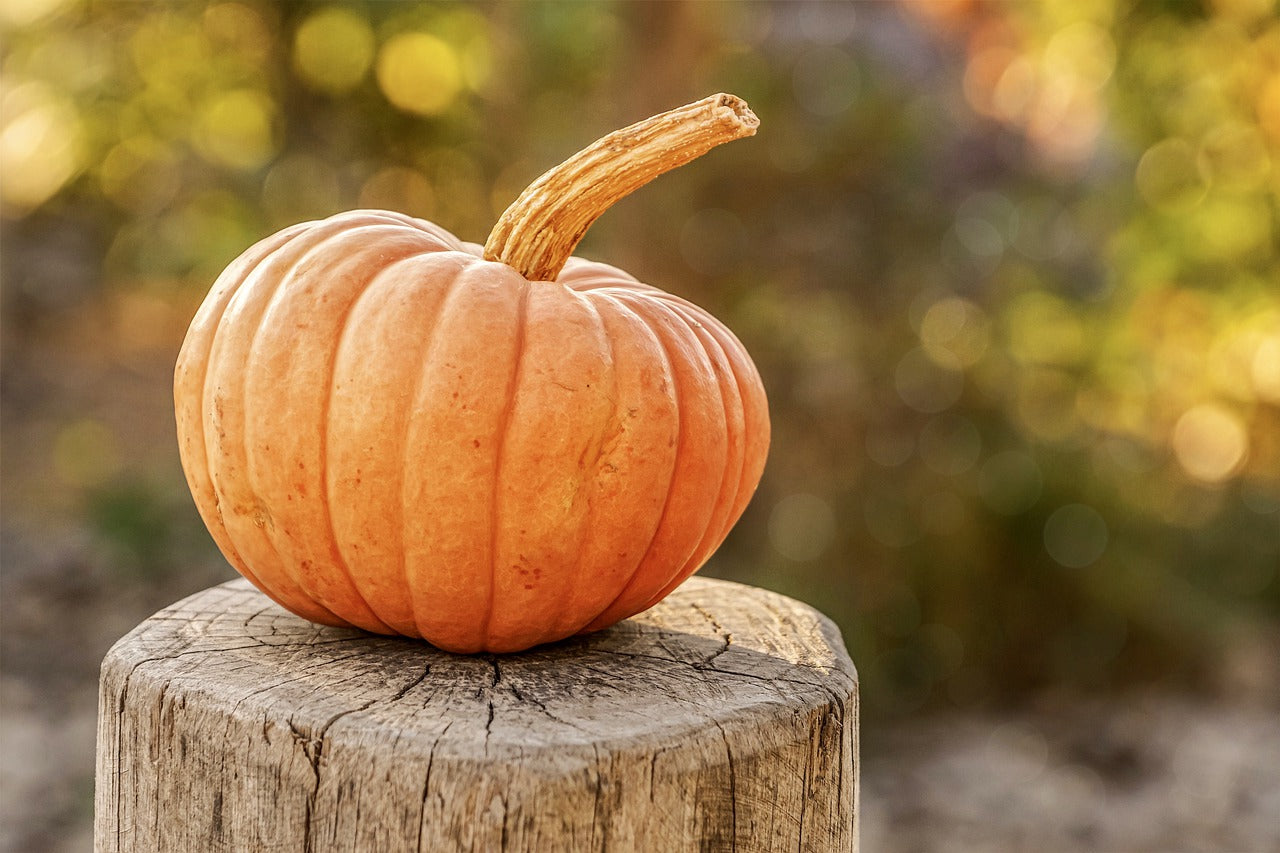
Canned Pumpkin For You
I saw an article floating around about how canned pumpkin really isn’t pumpkin.
I read it, not knowing the answer…
And guess what I found out?
Sometimes canned pumpkin is 100% pumpkin… and sometimes it’s cut with butternut squash.
But either way, it’s healthy for you.
Well, that’s assuming it’s pumpkin puree and not pumpkin pie filling which is loaded with sugar.
A few years ago I wrote about the benefits of winter squash.
People underestimate the health benefits of squash. They typically think of leafy green vegetables as being superior healthwise.
Turns out that squash, especially pumpkin, is actually one of the more beneficial foods you could incorporate into your daily routine.
In this article I’m going to give you some insight into why ground up Jack-O-Lantern is one of the best wintertime foods to eat.
Enjoy this article and some pumpkin.
Here’s How Canned Pumpkin Could Improve Your Health
In writing this, I realize I mentioned above that canned pumpkin can sometimes be mixed with butternut squash.
I’m going to write this article assuming you go for the good stuff and aren’t getting something that has other squash in it.
Even though that’s the aim of this article, you might want to consider this.
Butternut squash is quite similar to pumpkin in nutrition profiles.
The orange color of these foods mean they’re quite similar to one another.
So, without further ado let’s talk about the benefits of pumpkin.
1 - Promotes Cardiovascular Health:
Your heart health, I care about it.
Even though it’s only the size of your fist, your heart is the most powerful organ in your body.
Who knew that an orange gourd could help it beat better and keep it healthier.
It does this in 2 specific ways, both are related to nutrients it provides.
Pumpkin is high in fiber as well as minerals needed for heart health.
Fiber is known to help support healthy cholesterol levels. It does this by helping your body adjust the ratio between bad cholesterol and good cholesterol. There are a number of studies that show when you eat high-fiber foods it can drive down LDL cholesterol, while promoting an increase in HDL cholesterol.
And potassium is a mineral that is critical for your heart to maintain a steady beat.
I like how Dr. Axe’s website describes what the cornucopia of nutrients does for you:
“Pumpkin is loaded with minerals that support a healthy cardiovascular and immune system, including potassium, magnesium and iron.
Potassium-rich foods and those containing magnesium help normalize blood pressure levels and support heart health, while iron is needed to provide oxygen to red blood cells.
Additionally, you’ll find plenty of manganese within pumpkin, which defends against loss of bone density and fractures, while also providing anti-inflammatory benefits that promote cognitive, metabolic and joint health. Manganese also helps the body utilize iron, which can help keep levels within a normal range and prevent anemia (low iron).”
2 - Loaded with Health-Boosting Vitamins and Antioxidants:
We healthcare providers talk an awful lot about vitamins and antioxidants.
Many of us are quick to recommend supplements to make up for deficiencies.
And, I stand by that still.
However, I think that when you dedicate your life to eating well the need for supplements subsides.
Canned pumpkin is rich in several key vitamins:
- Vitamin A
- Vitamin C
- Vitamin K
I’ll work through these in reverse order, since I want to make a clarifying comment about vitamin K.
Vitamin K in pumpkin is different than that found in organ meats. Pumpkin features vitamin K-1 and it’s an important constituent in blood clotting.
I talk a great deal about vitamin K-2 on this site, and you cannot get that from pumpkin.
But, you need vitamin K-1 so that your blood flows and clots correctly.
Vitamin C and vitamin A are both strong antioxidants.
If you’re concerned about your immune health vitamin C is a must. If you want collagen to form in your body, vitamin C is a must. And if you want to recover from wounds and properly relay neurotransmission you need vitamin C.
And what of vitamin A, wondering what that’s good for?
Vitamin A is essential for bone health as it interacts with Vitamin D-2 and vitamin K-2 to help activate bone-building processes. Additionally vitamin A is critical to keeping your eyes healthy and is also helpful for immune system support. Past that it acts as an antioxidant that can scour the body for free radicals and neutralize their harmful effects on cells.
But that’s not all…
More Nutritional Benefits Of Canned Pumpkin
I decided to grab a nutritional profile of canned pumpkin so you can see just how much goodness is in this orange gourd.
- 83.3 calories
- 19.8 grams carbohydrates
- 2.7 grams protein
- 0.7 grams fat
- 7.1 grams fiber
- 38,135 international units vitamin A (763% DV)
- 39.2 micrograms vitamin K (49% DV)
- 3.4 milligrams iron (19% DV)
- 0.4 milligrams manganese (18% DV)
- 10.3 milligrams vitamin C (17% DV)
- 56.4 milligrams magnesium (14% DV)
- 505 milligrams potassium (14% DV)
- 0.3 milligrams copper (13% DV)
- 2.6 milligrams vitamin E (13% DV)
- 1 milligram pantothenic acid (10% DV)
- 85.8 milligrams phosphorus (9% DV)
- 0.1 milligrams riboflavin (8% DV)
- 0.1 milligrams vitamin B6 (7% DV)
- 29.4 micrograms folate (7% DV)
- 63.7 milligrams calcium (6% DV)
So the next time pumpkin season is upon you, consider adding a few extra cans to your cabinet. You won’t regret it.



